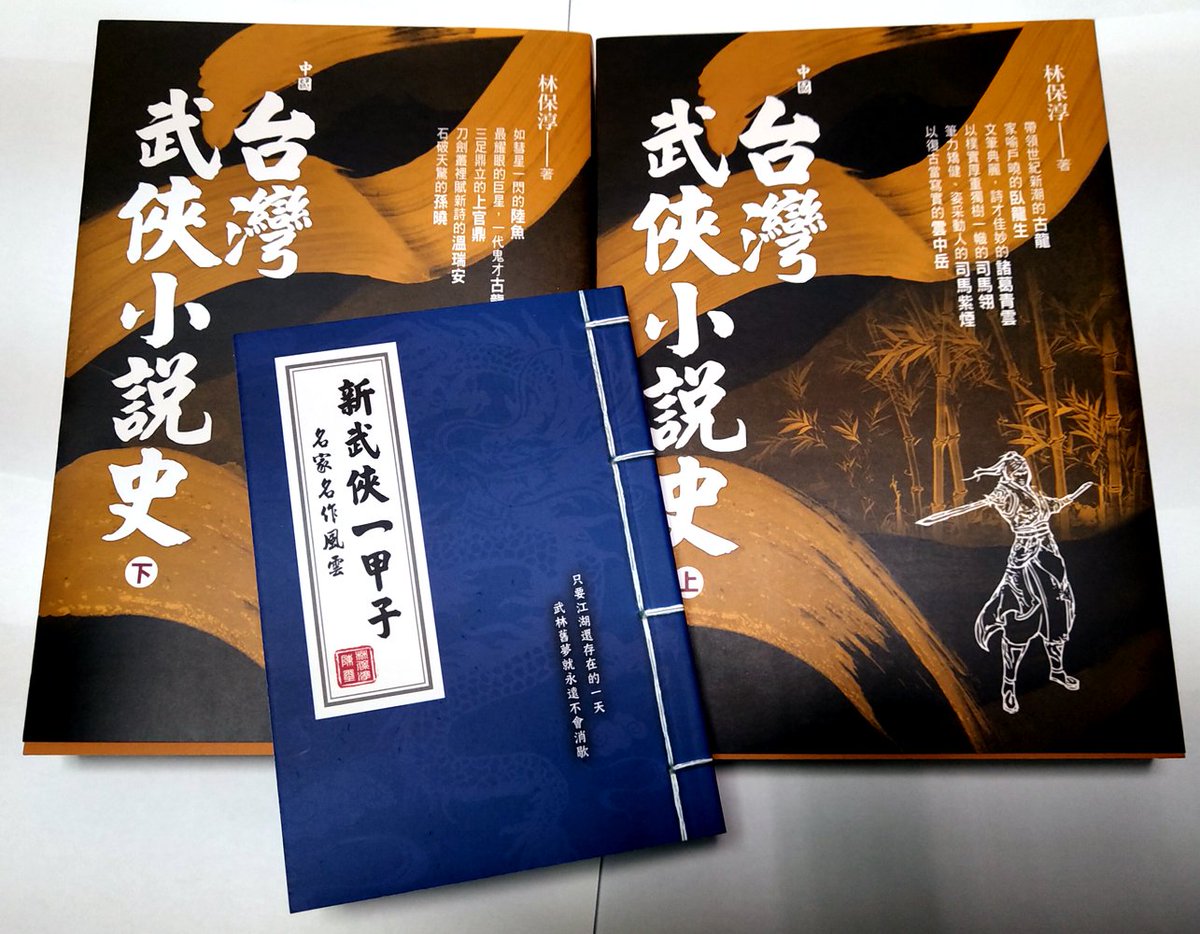
It's here! A History of Taiwan Wuxia Fiction《台灣武俠小說史》by Lin Baochun 林保淳 in two volumes. The limited blue booklet that comes with it has a few chapters excerpted from this book and the upcoming History of Hong Kong Wuxia Fiction by Chen Mo (Aug 2022)
#wuxia #武俠

#wuxia #武俠


Each volume is 600 pages, so altogether this is twice as long as the previous Developmental History of Taiwan Wuxia Fiction by Ye Hongshneg and Lin Baochun.
Here's a link for anyone who wants to purchase it: books.com.tw/products/00109…
There's other online sellers you can by from (such as Momo), but this is where I ordered it from and they are trustworthy (at least for domestic purchases). They do ship overseas.
There's other online sellers you can by from (such as Momo), but this is where I ordered it from and they are trustworthy (at least for domestic purchases). They do ship overseas.
What I'm most excited about is there's a lot more discussion of books by lesser known authors like Xue Yan, Cao Ruobing, Sima Ziyan, and there's more book discussions of more well known authors whose work is usually not discusses as much, such as Xiao Yi, Murong Mei, etc.
This discussions of books that no one ever talks about is really great in this. Such as Sun Yuxin's 孫玉鑫 Number One Flower Awes the Jianghu 威震江湖第一花, which has a woman MC and she is the one getting revenge!
#wuxia #武俠
#wuxia #武俠
• • •
Missing some Tweet in this thread? You can try to
force a refresh






